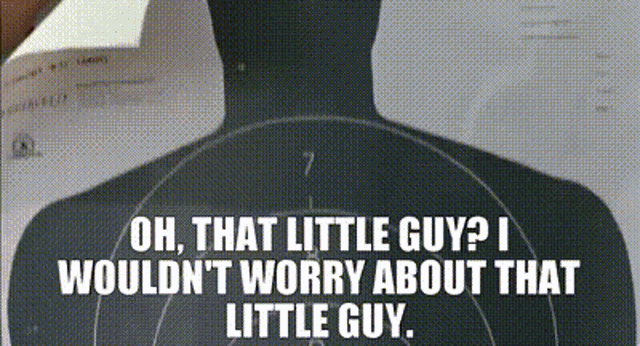
Asklemmy
A loosely moderated place to ask open-ended questions
If your post meets the following criteria, it's welcome here!
- Open-ended question
- Not offensive: at this point, we do not have the bandwidth to moderate overtly political discussions. Assume best intent and be excellent to each other.
- Not regarding using or support for Lemmy: context, see the list of support communities and tools for finding communities below
- Not ad nauseam inducing: please make sure it is a question that would be new to most members
- An actual topic of discussion
Looking for support?
Looking for a community?
- Lemmyverse: community search
- sub.rehab: maps old subreddits to fediverse options, marks official as such
- !lemmy411@lemmy.ca: a community for finding communities
~Icon~ ~by~ ~@Double_A@discuss.tchncs.de~
Short term: grow your own food.
long term: politics
you don't. you can try to mitigate it by using less plastic yourself, buying local foods, whatever, but it won't make much of an impact.
the less bad news is that plastic, by its own properties, is chemically relatively inert, so they're really not that harmful. they're still bad, mind you, just not all that hyped up to be.
PFAS are extremely inert, yet they wreak all kinds of havoc in the bodies of humans and animals.

https://en.m.wikipedia.org/wiki/Per-_and_polyfluoroalkyl_substances
Scientists thought, as you say, that them being chemically inert means they wont be dangerous to living creatures. Sadly they were proven wrong on that.
That's the neat part, you can't
😂
They’re in he air, the water, the food, your brain, apparently. Your reproductive fluids…there’s literally no escape. We signed this pact with satan when capitalism determined that profit is the only thing that matters.
The first step we could take? Bringing the exploitative and murderous system of capitalism to its knees. So we can promptly shoot it in the back of the head. Then, maaaybe our children’s children’s children would have an option to avoid microplastics.
https://www.aamc.org/news/microplastics-are-inside-us-all-what-does-mean-our-health
My take-aways from this article:
There's no good study on microplastics in humans.
They've tested "pristine" plastic on mice and it's pretty bad.
The plastics we're exposed to are loaded with chemicals and toxins.
She carries a stainless-steel water bottle and avoids plastic water bottles. She doesn’t microwave food in plastic containers and only uses glass, wood, or metal kitchen items, including mixing bowls, spoons, cutting boards, and food storage containers.
takes her shoes off to avoid tracking in dust from the outside and uses a HEPA filter to capture particles from the air.
Great point. Tires are one of the leading products polluting our environment and lungs.
This article also links to The Program on Reproductive Health and the Environment at UCSF which offers a guide for minimizing exposure to bad stuff. https://prhe.ucsf.edu/toxic-matters
Here's a relevant NYT Article - How to Minimize Your Exposure to Microplastics
You can't completely avoid them, but avoiding plastic food/drink containers is an easy thing to do. Good for the environment too, not just your health.
I sure do miss glass bottles.

Clothing and textiles from natural fibres. No rubber tires as they are major shedders of micro plastics.
Short answer: very simple
Avoid plastic
You buy bottled water?
That has Microplastics.
You buy or store food in plastic?
Microplastics..
Use plastic straws?
Welp, Microplastics
Etc...
Basically it's difficult to avoid it since we use plastic almost everywhere daily, but not impossible.
Microplastics have also been found in our drinking water. So maybe stop drinking water altogether.
I can confirm that if you stop drinking water, in 72 hours or so you won't have to worry about microplastics.
I read an article not that long ago that stated that they're in men's testicles and women's ovaries. In other words, they have become a part of your physical body and will become a part of the bodies of the next generation (likely several generations). They're unavoidable.
That's the fun part. You don't.
"Plastic came out of the Earth; the Earth probably sees plastic as just another one of its children. Could be the only reason the Earth allowed us to be spawned from it in the first place: it wanted plastic for itself, didn’t know how to make it, needed us. Could be the answer to our age-old philosophical question: “Why are we here?” Plastic, assholes!"
George Carlin.
Carlin the King.

Afaik it tends to concentrate further up the foodchain, so keeping meat, especially fish, out of your diet will help. Particularly filter feeders like shrimp and anything that eats those.
I'd also like to add that wrapping food in plastic reduces waste considerably, so you might want to look into that and balance your view against that.
In what way does wrapping food in plastic reduce waste?
It's better to look into it yourself, as I'm not knowledgeable on the topic.
Afaik a significant portion of all food is wasted by supermarkets, restaurants, and at home. Wrapping it in a thin foil keeps it fresh and extends shelf life considerably. So it's important to weigh all these things in order to find what's best environmentally.
Further, it might be the type of plastic that's safer for food and is trivial to recycle. It's also very thin and soft and so that might require a lot less resources to produce compared to harder and thicker plastics. For example a plastic bottle might contain more plastic than say the wrapping of 100s of paprika's. Just pulling those nrs from the air but it's just to give a rough idea.
Become a communist and start advocating for workers to run the economy because we wouldn't fuck ourselves over like capitalists will.
Just embrace them
Use only textiles made of cotton, wool or linen (I recommend linen in summer and wool in winter, since cotton isn't very good at conserving your body heat), look for a bamboo toothbrush, avoid foods in plastic packaging (this can sadly be difficult) and only put them in ceramic, metal or glass containers.
I assume your goal is to minimise the amount of microplastics inside your body, so the materials that touch your food are a priority. The amount of microplastics in your food or drink also depends on how long they are in contact with plastic. For example, if you have juice in a plastic bottle, drinking it right away or putting it in a plasticless container would probably result in less microplastics than storing it in the said bottle.
If you are more concerned about nature, try shopping at second-hand stores.
I just want to note that I had to switch away from bamboo brushes due to them not having soft versions where I live.
Do you have a source for this? Can hardly imagine putting leftovers in a tupperware style container will get microplastics in the food. Unless your scraping it like a wildman with utensils.
Read a material science book. Then think about exposure anytime you see plastic.